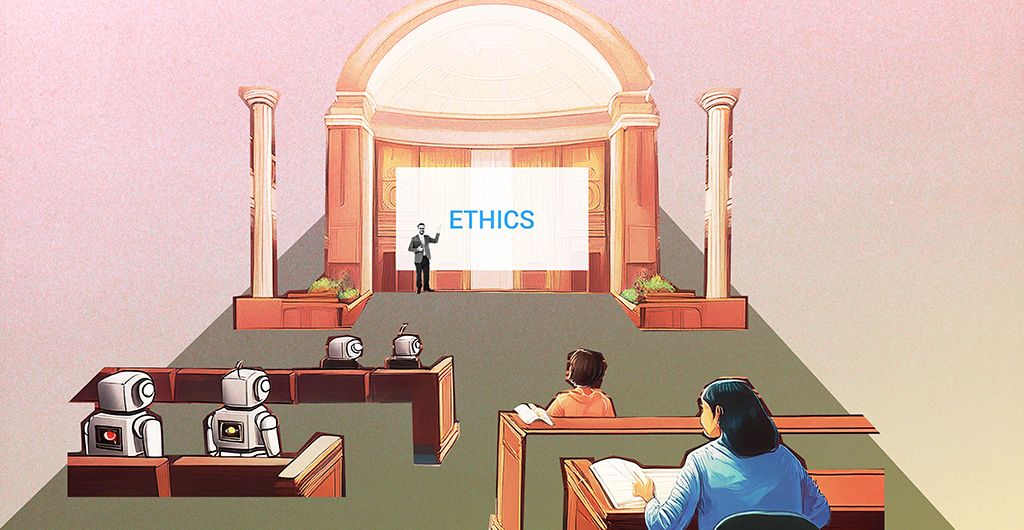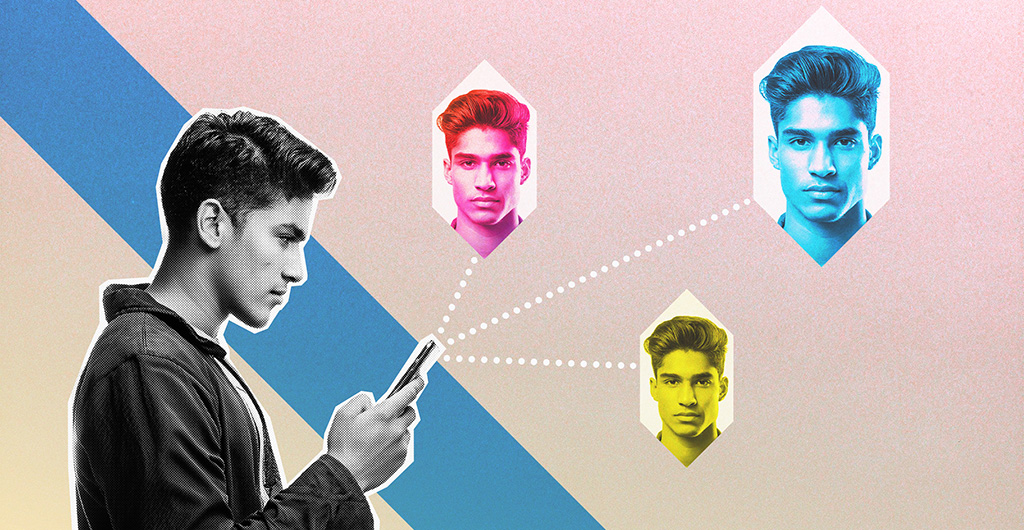
Issue #4
In code we trust?
A question that challenges assumptions. It captures Gen Z’s shifting trust, AI’s ethical dilemmas, digital autonomy, and the search for self in a machine-mediated world.
Data privacy
Can AI be ethical by design?
AI is everywhere, from workplace tools to creative platforms. But can it be ethical by design, or are we just scrambling to fix guardrails later? This article explores consent, transparency, and privacy-by-design to understand if AI can really be ethical and human-centric.
The duality of algorithms in a privacy-conscious world
Algorithms make our lives easier by personalizing what we are exposed to. They also quietly shape them. How much influence is too much?
The new junior engineer: surviving an AI-dominated job market
The traditional path from computer science degree to a junior developer role has fundamentally changed. AI is reshaping the software engineering landscape. New graduates face decreased hiring opportunities, elevated skill requirements, and an industry where “junior” tasks increasingly fall to AI-assisted workflows.
Beyond the algorithm: Gen Z’s quiet revolution in online control
Gen Z has a new approach to digital interaction. To thrive in evolving times, tech companies must earn user trust through thoughtful navigation of the digital world’s complexities.
Are we really protecting kids online?
The rallying cry of “protect the children!” drives laws that appeal to all political parties, as well as platform rules, but ID checks, bans, and lawsuits often fail in practice. They can create risks for youth, disrupt marketing, and entrench Big Tech. We explore the gap between good intentions and real outcomes.
The consent‑to‑conversion flywheel: Make Consent Mode v2 a growth engine
Your practical, trust-first playbook that shows how better consent UX — implemented with Usercentrics and anchored in Consent Mode v2 and Microsoft UET — becomes performance infrastructure. We map the consent-to-conversion flywheel, detail instrumentation and QA, and connect trust metrics to modeled conversions, bidding stability, and ROAS.
Privacy as personal branding: Gen Z’s digital citizenship
For Gen Z, privacy is more than compliance — it’s identity. They practice selective vulnerability, balancing data sharing with values, embrace digital minimalism, and treat AI ethics as personal. Businesses must recognize privacy as cultural currency: authentic practices, transparency, and inclusivity are key to earning their trust.
The future belongs to brands that personalize wisely, while respecting Gen Z’s data
The State of Digital Trust report explored attitudes towards data privacy across age groups — but until now, we haven’t shared the deep-cut insights from Gen Z, whose members grew up in the digital world. As a result, Gen Z is willing to make tradeoffs for online convenience and personalized experiences, without being naive about the value of their data.
Who shapes the self? Countering big tech’s future narratives
Your Google history is a diary you never meant to write. In this Q&A, Vauhini Vara, Pulitzer finalist and author of Searches, turns the web’s tools back on themselves, sharing practical ways to resist platform narratives, rethink metrics, and keep value with people, not platforms.
Is autonomy the cost of digitalization?
The convenience of digitalization risks human autonomy. AI’s speed, invisibility, and delegation already often replace human judgment, authorship, and critical thinking, leading to cognitive atrophy. Preserving productive friction and deliberate delegation of tasks to AI maintains agency and offers a competitive advantage in an increasingly automated world.
How answer engines are reshaping the internet
Since ChatGPT’s launch in November 2022, answer engines have transformed how we seek information. We speak with Corral CEO Sadiya Shiraj on what this shift means for discovery, creativity, and how brands can stay relevant in a rapidly changing internet.
Beyond clicks and conversions: What Gen Z wants from marketers
Marketing has always followed generations. But today’s consumers aren’t swayed by mass campaigns. They want privacy, personalization, and stories that feel real. Here’s how Gen Z is changing the rules, and what it means for the future of marketing.
Work’s identity crisis and the new hiring landscape
Gen Z won’t trust what they can’t verify. Fathom’s James Robins breaks down how digital ethics, AI transparency, and privacy by design are becoming make or break for employer brands, and why trust is the new talent magnet.
Privacy choices in 2025: Consent as a fundamental brand moment
Three years ago, users barely looked at cookie banners before hitting ‘Accept all.’ Today, 42% actually read them. As privacy becomes an intentional choice, marketers are turning consent moments into brand-building opportunities through Privacy-Led Marketing.
Got questions about privacy regulations?
Privacy regulation checklists: All you need to know to achieve and maintain compliance.













